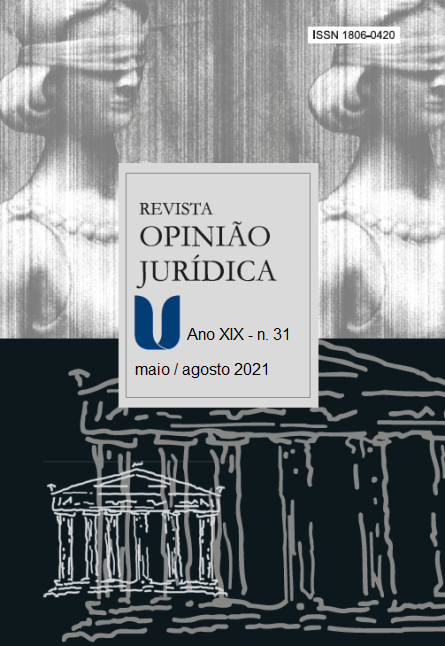BEYOND THE ARGUMENTS OF THE JUDICIAL DECISION: EMPIRICAL ANALYSIS OF THE INFLUENCE OF THE DEFENDANT'S PROFILE ON THE DECISION THAT DISPENSES THE COMPULSORY CONCILIATION AND MEDIATION HEARINGS AT THE BEGINNING OF THE PROCESS (ART. 334, CPC)
DOI:
https://doi.org/10.12662/2447-6641oj.v19i31.p127-153.2021Keywords:
Civil Procedural Law, Empirical legal studies, Decision-making process, Judicial behaviorAbstract
Objectives: The defendant's profile influences the dismissal of the hearings provided for in art. 334, CPC, in cases that go through the rite of the common procedure in the civil courts of the city of Recife/PE? Some judges have dismissed these hearings in a manner contrary to the law, which is mandatory, with few exceptions. With this research problem, the general objective of this work is to identify whether, in addition to the justifications given by the judges to dispense with an almost always mandatory procedural act, a procedural factor that apparently is not related to the dismissal of the hearing, which is the profile of the litigant, may have a correlation with the non-designation against legem of the procedural act in question.
Methodology: To answer the proposed research problem, a quantitative empirical methodology was used, consisting of statistical analysis by logistic regression, through which the strength of the association between the non-designation of the audience and four profiles of defendants distinguished by the number of actions to be tested that respond.
Results: When empirically testing the hypothesis that variation in the nature of the defendant (between rare, occasional, recurrent and habitual) would produce variation in the judge's chances of scheduling (or not) a previous hearing, it was found that, in the city of Recife/PE, there is a tendency to designate the audience when there are rare litigants in the passive pole (individuals, individual microentrepreneurs, microenterprises and small legal entities, as a rule) and, on the contrary, there is an increase in the tendency to no designation as the defendant becomes more habitual in the common civil justice of the locality where a research was carried out.
Contributions: With this work, it is possible to identify that there are factors other than the ones mentioned in the decisions that do not designate the audiences that influence the decision not to carry them out in a way against legem. Presenting this data, it is possible to think of more realistic lege ferenda proposals, that is, that consider judicial behavior through its empirical verification, and not deductions of a purely dogmatic nature, especially when the rule in question is raised as potentially cooperative for a “change of culture” - in this case, litigation.
Downloads
Published
How to Cite
Issue
Section
License
CESSION OF COPYRIGHTS
The submission of articles to analysis for publication on Opinião Jurídica implies the author(s) transfers copyrights to Centro Universitário Christus – UNICHRISTUS for reproduction, publicizing, distribution, printing and publication, according to the Publication Norm 414R, Opin. Jur., Fortaleza, year 12, n. 16, p.1-414, Jan./Dec. 2014, costs to be bore by UNICHRISTUS, in whatever format or means that may or shall exist, in accordance to articles 49 and following of Federal Law 9.610/98.
1. In ceding copyrights, the author(s) agrees to do so in exclusivity, free of charge and for the totality of the work.
2. UNICHRISTUS may make the work, in its entirety or in parts, available for scholarly purposes, without altering its contents, except for small corrections that are deemed necessary.
3. The cession of copyrights is valid in all countries and for versions of the material in its original language or translated into a foreign language.
RESPONSIBILITY FOR THE CONTENT
By submitting an article, the author(s) declare to have sole responsibility for the content of the piece and is(are), therefore, responsible for any judicial or extrajudicial measures referring to it.
1. In case of joint authorship, all authors are considered collectively responsible, except when proved otherwise.



















